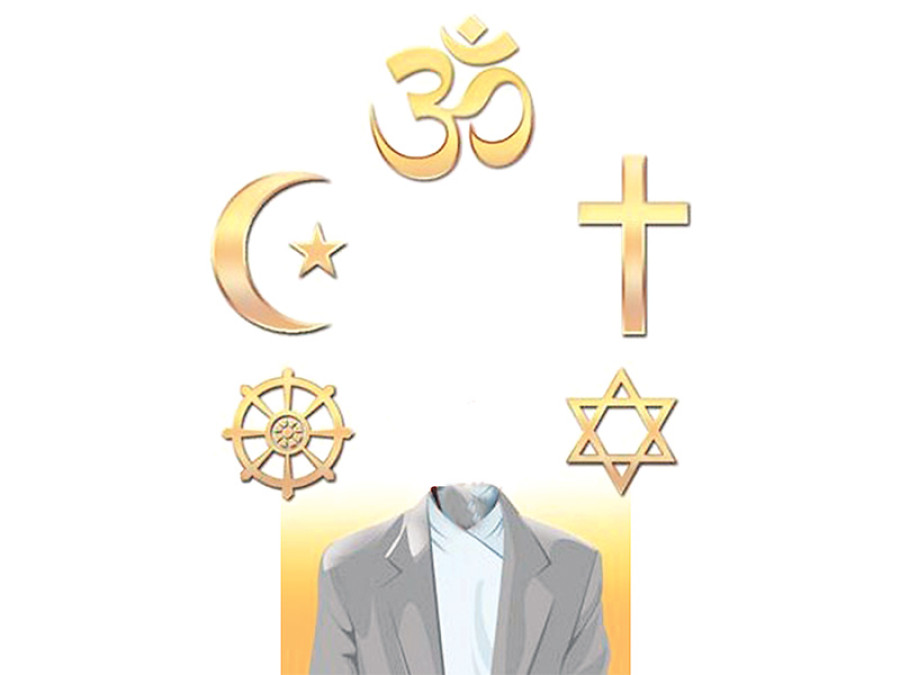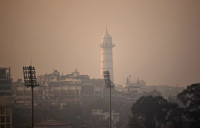Opinion
Pray for Nepal
A secular state ensures impartiality that freedom of religion does not
Secularism (dharma nirpekshyata) in principle proposes two facts. A state is secular when it strictly does not recognise any official religion and metes out equal treatment to all faiths; the logic being that geography does not define religion. However, religious cultures and civilisations thrive within a geographical context. Thus, the separation of religion from the state is a true prerequisite of a pluralistic, democratic and republican model.
Freedom of religion (dharmic swatantra) is a personal quest with the idea of god. Freedom of religion existed in the previously Hindu state of Nepal where other faiths were kept in quarantine. By acknowledging a pluralistic approach, secularism in Nepal ensures equal rights of diverse religions while avoiding communal tension.
West and East
Any singular religion is insufficient to teach the science of God . Therefore, scepticism and tolerance through secularism becomes a cornerstone for religious human science. European laicism followed rational and enlightened thinkers like Voltaire, Diderot and Spinoza. George Holyoake’s approach to secularism shifted towards a modernist movement. The American free thinker Robert Green Ingersoll defined secularism as the religion of humanity. Secularism in the present world is to strive to diminish violence, vice, ignorance, poverty, disease with social ethics.
India defines its secularism as the acceptance and participation of the state in different religions. America’s secular trait has protected religious organisations from government interference. Turkey’s constitution explicitly introduced secularism even though 99 percent of its population subscribes to Islam.
Ongoing struggles
Now, instead of moving into the long cherished notions of constitutional law, we are literally as well as figuratively sitting on a seismic hot belt. This stubborn country refuses to accept that we Nepalis are different in culture, religion and philosophy. We have cohabited through the annals of history with resilience against an abusive political and social Hindu state order.
Secularism was the cutting deal in unifying the Maoists for the 2006 Jana Andolan, citing that Hindu state dominance was the cause of societal inequality and disorder. For most Hindus, secularism meant the removal of the king. For the Janajatis, Madhesis, Dalits, Buddhists, Christians and Muslims, whose cultural identities had been relegated to the private sphere, it encapsulates their sentiment for national inclusion. Finally, the separation of Hinduism from the state would give them a level playing field for pluralistic pride.
If anything, the four major parties have been successful in bringing a strange madness throughout Nepal, ripe with omens and extravagant gestures, for example, half-naked children wearing dark glasses demanding a Karnali autonomous region.
There are ongoing counter-movements with Tharus holding a general strike in 22 Tarai districts with Madhesi, Janajati and Muslim solidarity. The Dalit movement has escalated despite oppressive police action. Women have been protesting days for on end demanding equal citizen rights.
The current situation is alarming with intense ideas triggering extraordinary national and political divisions. Citizens are raising questions about the principles of freedom and the meaning of nationalism. The Preamble and Articles 4 (1) and 11.3 are under siege. The four parties have claimed extraordinary political powers, while the constitution is drifting into dangerous waters. Leaving an inconclusive testimony in this long and complex reality will need virtues beyond declaring Nepal a Hindu state.
Hinduism is not Buddhism
Both acceptance and rejection theories abound. When the Constitutional Dialogue and Consensus Committee tries to convince non-Hindus that secularism and freedom of religion are the same and that Hinduism is altruistic, are we being warned of the continuous ominous religious oppression in the name of Hinduism? If religious freedom implies equal freedom, why meddle with the clarity of secularism which means neutrality? Baburam Bhattarai sternly admonishes that the constitution should be promulgated as the need of the hour is “our geography, culture and lifestyle”. When were Mao, Lenin and Marx a more integral part of our geography, culture and civilisation than the Buddha?
Prakash Chandra Lohani’s write-up (‘Let us be,’ August 4) which advocates retaining Nepal’s Hindu status in view of the increasing proselytisation by Christians, is delusional thinking. If this was the case, then Hinduism would have disappeared during India’s 65 years of secularism under the onslaught of conversion. What would be Lohani’s choice if he had been born a Dalit, and what would be his mode of escaping untouchability?
Secularism is neither an argument against Christianity nor any other religion. It is independent of it. It does not question the pretensions of other faiths. Secularism does not say there is no light or guidance elsewhere, but it maintains that guidance is essential for mankind. Hinduism cannot be the moral blanket for religious freedom of other religions and cultures.
When Lohani says that Hindus and Buddhists are historically the same, it is like saying that the tiger and the cat are both from the feline family, so the difference in size does not matter. If Siddhartha had not rejected the Vedas and joined the Sramana movement and advocated the principle of equanimity for liberation from caste inequalities, he would not have been considered the Buddha. Buddhism is the antithesis of Hinduism in the human realm.
When you alter a word, it changes the reality. A secular state ensures impartiality that freedom of religion does not. The four parties must keep this moral question in mind while drafting the constitution: whether the statehood that identifies with every faith without bias has a superior moral bearing to one that exclusively promotes only one. In fact, the Hindu state in its conservative sense would prohibit the ecclesiastical caste from meddling in politics. In trying to convince the country that freedom of religion best serves Nepal, we would also like to know if Nepal would be a laicist state. For this, you need, as Indian Prime Minister Modi said, a ‘rishi mind’ with Buddha chitta.
Pasuwan is Member of Parliament while Yonzon and Sherchand are with the Civil Rights for Equanimity and Justice




 18.12°C Kathmandu
18.12°C Kathmandu








%20(1).jpg&w=300&height=200)

